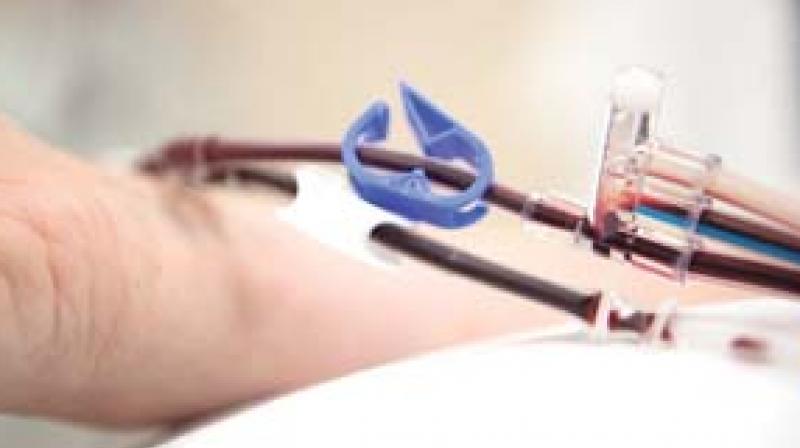Experts moot aphaeresis to face dengue perils
Recent dengue outbreak saw several centres report shortage of platelets.

THIRUVANANTHAPURAM: In view of the huge demand for platelets during dengue outbreak, blood transfusion experts have recommended setting up facility for aphaeresis in major district hospitals across the state. The state has witnessed a huge increase in dengue cases and deaths over the past seven years. From 1,304 confirmed and 10 deaths in 2011, the state recorded more than 30,000 suspected cases this year and 71 deaths. During the recent dengue outbreak in the state, several centres reported shortage of platelets causing huge concern. Each unit raises the platelet count by 5000-10000 per c.mm only and multiple transfusions are needed in many patients.
Experts say the proposals for setting up aphaeresis in health department hospitals have been pending for the past three years. They want the government to take the matter on priority and prepare the major hospitals to be battle ready for dengue outbreak. While there are divergent opinions on when to go for platelet transfusions is debatable, the request from physician cannot be declined even if it is made when the count is as high as 50,000. The recommended transfusion trigger is 10,000 in non bleeding patients and 50,000 in patients with haemorrhage.
“IMA Blood Bank Aluva is introducing aphaeresis as it could not meet even 30 per cent of platelet demand. The donor can donate 6 to 8 units every four days instead of 1 unit once in three months,” said Dr.N.Vijayakumar, Chairman, IMA Commi-ttee on Blood Banks, Transfusion Medicine Expert, NACO & Assessor, NAB. An Aphaeresis machine offers many advantages. It helps to limit donors needed to donate a therapeutic dose thereby reducing exposure of immune compromised patients to antigens from different donors. It also limits platelet refractoriness that develops with repeated administration of pooled platelets.
The increment attained with single donor platelets is equal to or better than pooled platelets/random donor platelets. The cell separator saves man hours spent on screening for transfusion transmitted infections. The donor can donate the very next week while in the usual case he has to wait for 3 months The major constraint is the cost of consumables which costs Rs 7000. However, experts say this could be tackled in the government sector with subsidised rates.

